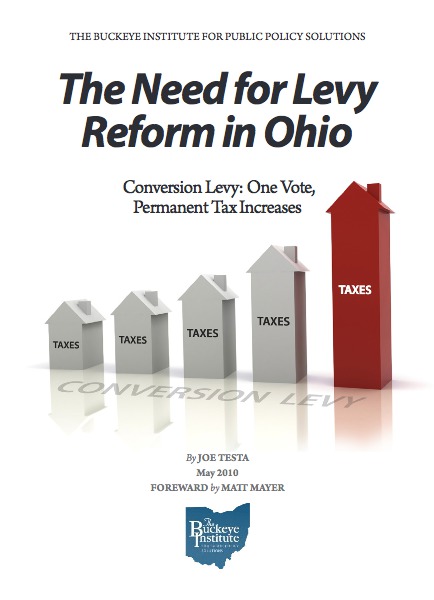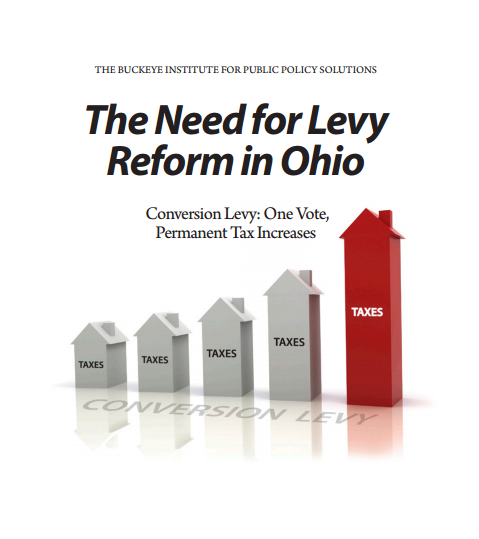Foreward by Matt A. Mayer
 Why This Report Matters to You
Why This Report Matters to You
Ohio’s property tax system is already confusing and convoluted. With the different types of levies used by government entities to secure funding and the unique language used in the levy system, the last “reform” voters need is another type of levy that sounds reasonable, but could result in three bad outcomes. The conversion levy option should be repealed.
First, the conversion levy is not revenue neutral. If your school district tries to pass a conversion levy, one of its “selling” points will be that it is revenue neutral because all it allegedly does is combine several existing levies into one “conversion” levy. As a result, the school district will claim that it will not result in a tax increase, but simply extends the existing tax. This claim is grossly misleading.
Because the conversion levy structurally eliminates the protection homeowners currently have from a piece of legislation passed in the 1970s that keeps tax increases low when home values increase, in the years following passage of a conversion levy, homeowners will be hit with significant tax increases each time their home is assessed at a higher value.
Next, school districts can seek to make the conversion levy a permanent levy, which means that voters would never get a chance to slow or stop the large tax increases that will come as home values increase. As the data in this report highlights, had Columbus City Schools passed a conversion levy in 1998, the tax increases over the next ten years would have generated almost $170 million more revenue for that school district – without homeowners having any ability to stop the tax hikes.
Finally, with a permanent conversion levy in place that generates more tax revenue from higher taxes, homeowners and parents will lose one of the best tools driving accountability in the school district: namely, the need for school districts to come back periodically to ask for more money through levies. Each time a school district has to ask its homeowners for more money, those voters get a chance to hold that school district accountable for the spending decisions that have been made. With voters routinely rejecting levies, such a tool is critical, especially as budgets grow disconnected from the health of the economy or the educational outcomes achieved.
To read the rest of the report, click here: Conversion Levy

